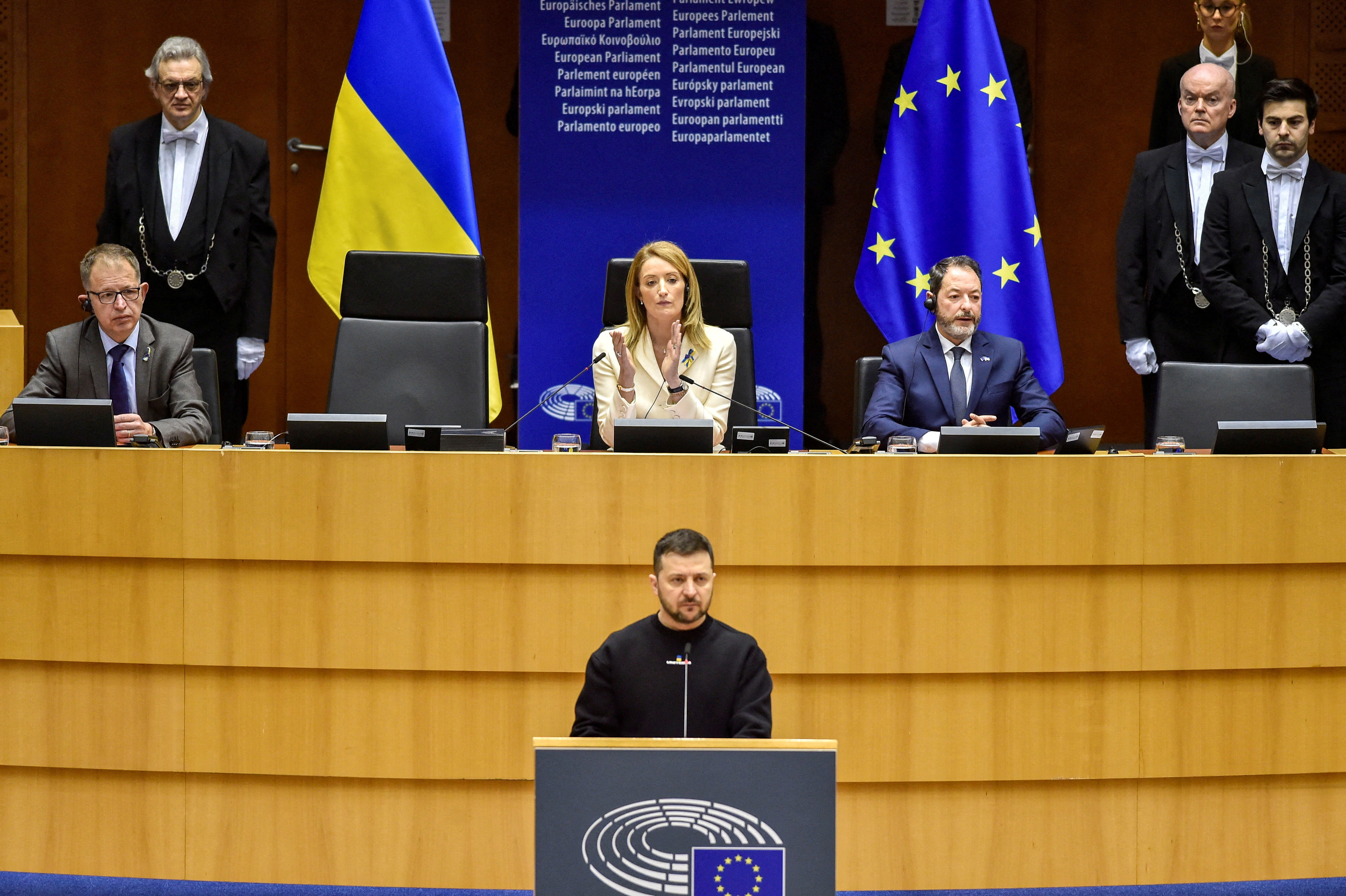
Jakub KOREJBA(*)
The visit paid by Volodymyr Zelensky to Brussels was certainly a spectacular success in terms of both side’s image. But behind the poetry of moving declarations, there is a prose of life that may easily lead to mutual disillusionment.
According to what both Ukraine and EU declare, both sides are deeply persuaded to boost the process of integration with Ukrainian membership in the Union as its ultimate aim. When President Zelensky declared that “Ukraine will win the war with Russia and become an EU member”[1], Emmanuel Macron addressed the first part of this declaration by saying that “Russia can not win this war” and Olaf Scholz the second one, stating that “Ukraine belongs to the European family”[2]. The linkage of the two facts (the outcome of war and the European identity of Ukraine) is not accidental and shows a clear logic of the fact that Ukraine is fighting not only for its independence and territorial shape but for a vision of its civilizational future, now firmly connected to the European project.
But, “defending the European way of life” in Ukraine will require, as President Zelensky said, not only “fighting, defending itself” but also “modernizing and reforming its institutions”[3] which clearly shows the understanding of the fact, that the process will have two stages, entirely different one from another: after the intensely dynamic heroical defense of the motherland ends (wishfully with a spectacular victory) the prolonged, boring, bureaucratic negotiations will come, in most cases resulting in a ambiguous tradeoffs based on a compromise that may be seen as ‘rotten’, especially by the patriotic segment of Ukrainian public opinion. The contrast between the two may be flagrant, the final outcome (the exact timing and conditions of Ukraine’s membership) very different from expectations and the cognitive dissonance as deep as the hope is high, and this is the situation both sides shall be prepared for.
To make it all in a proper proportions, it must be said that the single fact, that Ukraine formally applied for the membership and was officially accepted as a candidate-state is already a great success, especially for EU’s Eastern Flank members such as Poland, who hope for getting rid of their peripheric status inside the Union. Since their accession, the ‘new Europeans’ opted for a future enlargement that would transfer them from the geographical edge to the core of the integrative structure, moving European standards and guarantees eastwards (this is one of the reasons of the Polish consequent support not only for post-Soviet state’s accession to the EU but also for the Turkish one). But for years, there was little positive response to that postulate both from the side of European bureaucracy and the EU’s leading states as well as from the Ukrainian governments and society who mimicked reforms covering their procrastination with bombastic declarations. Only after the full-scale war started, the fact that a country located where Ukraine is, has no other option than be a part of a bigger integrative structure and that the choice is limited either to the EU or the “Russian World” became ultimately clear. This is something that Poland understood already thirty years ago deciding to pass the thorny trail of restructuring itself according to the European standards. The consequent adjustment to Brussels’s demands was neither easy nor entirely satisfying, but what happened to Ukraine confirms, that in this particular place of the planet and this specific time, that was the only possible choice.
But, unlike many Ukrainian patriots think, the end of the war is not the end of the process but merely its start. Defeating Russia and confirming its territorial and demographic integrity is a condition of being able to join the UE, but just one condition of many. And all the other conditions will be presented to Ukraine irrespective (or, from the point of view of Ukrainians, despite) its very awaited victory over Russia. And the agenda will include not only the formal demands concerning legal and institutional reforms formulated in a neutrally technocratic terms by the clerks from Brussels, but also the controverse ideologically ‘hot’ postulates coming from the national capitals (such as the question of the Hungarian minority to be put on the table by Budapest or the heroization of Stepan Bandera and the UPA raised by Warsaw). And this clash with the reality may be a difficult task for the Ukrainians winged by their freshly earned self-confirmation of a heroic nation who saved Europe from the Russian post-imperial Reconquista. To be entirely clear: containing Russia is unequivocally beneficial for both Ukraine and Europe and being ready to do it is a clear merit. It’s just a question of a different order than becoming a member of the EU and this is something that shall be clearly pronounced: there is no direct cause-and-effect relationship between defeating Russia militarily and fulfilling the EU membership requirements and one can’t be and will not be substituted to another.
According to President Zelensky’s declaration, this logic is clear to him personally, but the question is whether it is for the rest of Ukrainian political elite as well as the society as a whole. Because, Europe with its standards and the way of life will not miraculously come to Ukraine once the war is over. It’s rather the opposite: Ukraine has to come to Europe, and this is a lasting process rather than an instant event. And the simple fact of not being a part of Russian zone of influence is not equal to being a part of Europe: transforming Ukraine institutionally will require an entire change of deeply rooted mental maps, that will be neither fast nor painless. If Ukraine didn’t join the Western structures together with the rest of Central and Eastern Europe, there were reasons and the influence of the Russian factor was not the only one of them. Ukraine’s motivation to absolve from Russian influence is certainly impressive, but this zeal should also apply to work against corruption, mismanagement, bureaucracy, civil passivity and all other characteristic features of the post-Soviet national entropy.
If the distinction between winning the war and reforming the country as well as its linkage with the successful integration to the EU was overtly made, this hopefully means that the last summit will not add to the false expectations. Hiding the truth of what the future will require from Ukraine would be not only ethically wrong, but politically myopic: an overall disillusion of Ukrainians by the shape of their relations with EU after the war would easily produce anti-European resentment and play in favor of Russian interests.
Because – in one form or another – Russia will continue to exist after this war, and it would be intellectually naïve to expect it not to be interested in Ukraine. And the fiasco of Ukrainian reforms and its integration into Europe would ultimately confirm Moscow’s narrative about Ukraine as an ‘organic part of the Russian World’ incompatible with the West. Therefore, if what was said during the summit is to come true, a successful restructuring of Ukraine is as important as winning the war.
*Jakub Korejba graduated from Warsaw University (Institute of International Relations, 2009). Lecturer at MGIMO University in Moscow (2010-2015). Holds Ph.D degree (Problems of European Policy in Russia-Ukraine Relations, 2013). Journalist with several Polish newspapers and Russian TV stations.
**Photograph: Reuters
[1] https://www.trtworld.com/europe/live-blog-next-eu-sanctions-to-target-russian-state-propagandists-65293
© 2009-2025 Avrasya İncelemeleri Merkezi (AVİM) Tüm Hakları Saklıdır
Henüz Yorum Yapılmamış.
-
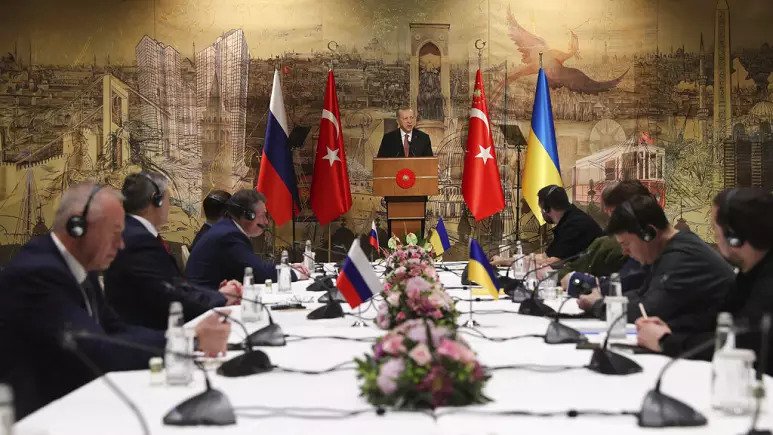 RUSSIA AND UKRAINE: FAR FROM PEACE - 27.09.2022
RUSSIA AND UKRAINE: FAR FROM PEACE - 27.09.2022
Jakub KOREJBA 27.09.2022 -
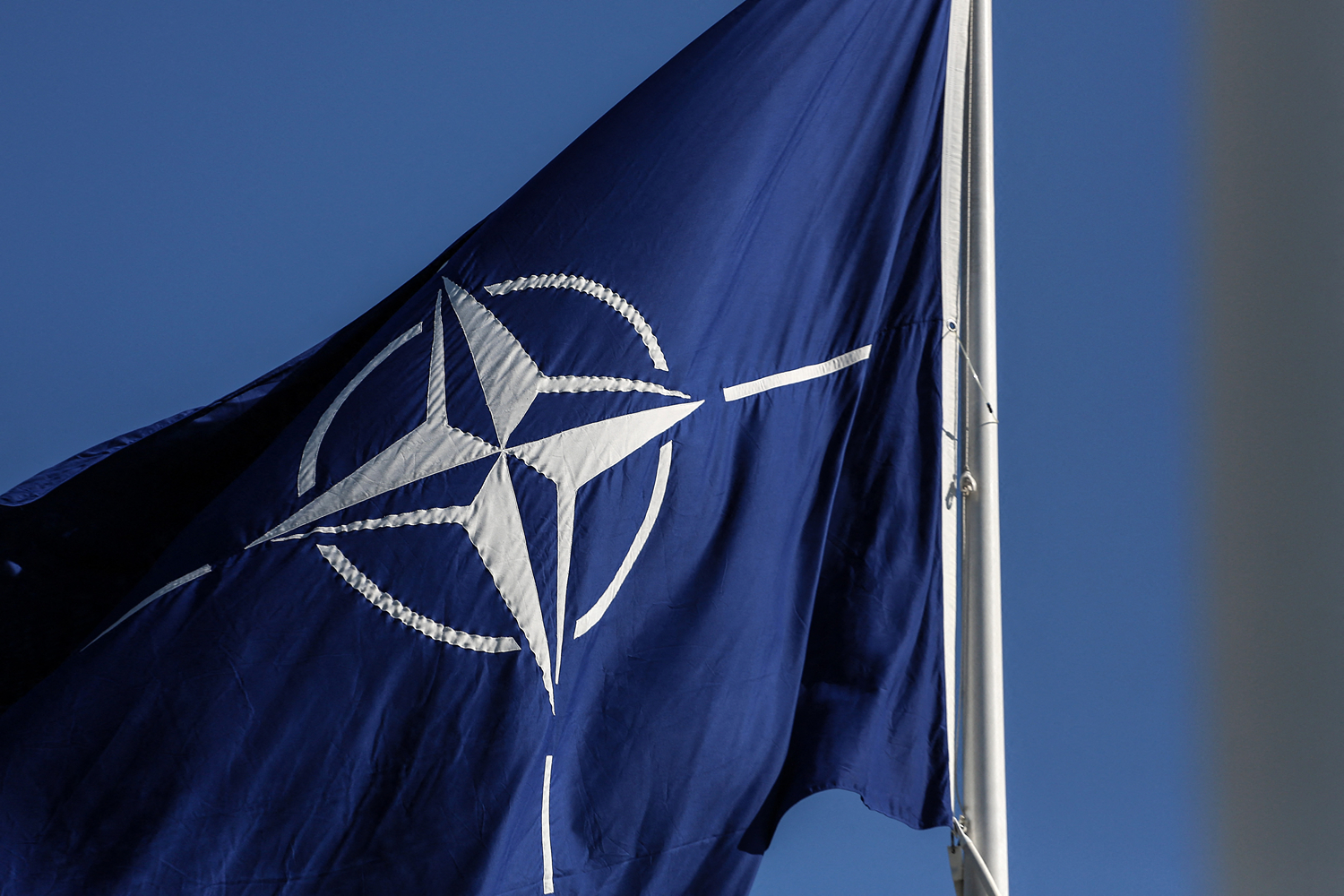 RETHINKING NATO TO MAKE IT STRONGER - 03.02.2023
RETHINKING NATO TO MAKE IT STRONGER - 03.02.2023
Jakub KOREJBA 03.02.2023 -
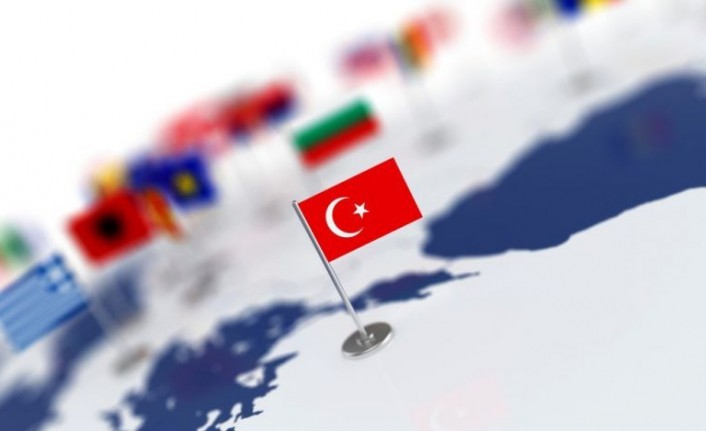 TÜRKİYE AND EASTERN EUROPE - PROSPECTS AND LIMITS
TÜRKİYE AND EASTERN EUROPE - PROSPECTS AND LIMITS
Jakub KOREJBA 06.10.2022 -
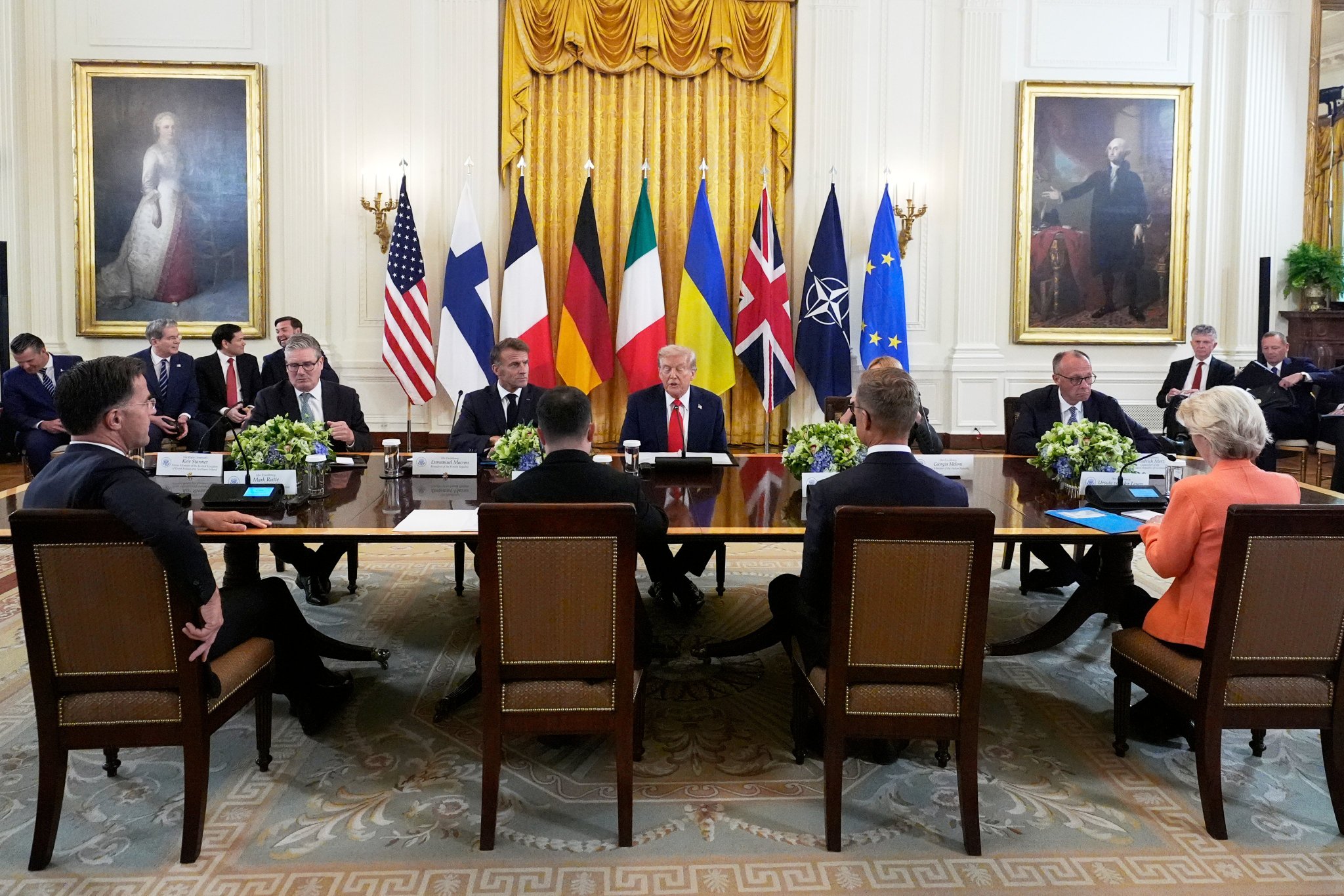 MEETING IN WASHINGTON - A LESSON OF REALISM - 22.08.2025
MEETING IN WASHINGTON - A LESSON OF REALISM - 22.08.2025
Jakub KOREJBA 25.08.2025 -
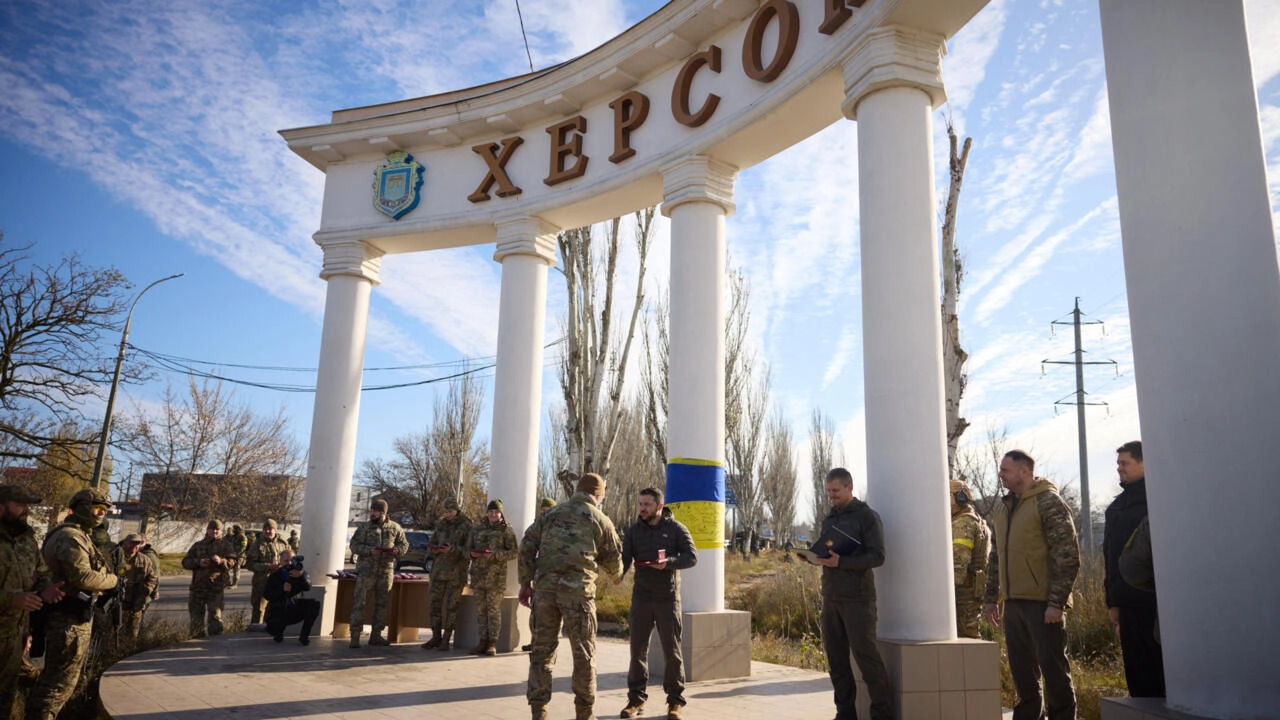 THE LIBERATION OF KHERSON BY UKRAINE - A GLORIOUS BUT TRICKY TURNING POINT OF THE WAR - 01.12.2022
THE LIBERATION OF KHERSON BY UKRAINE - A GLORIOUS BUT TRICKY TURNING POINT OF THE WAR - 01.12.2022
Jakub KOREJBA 01.12.2022
-
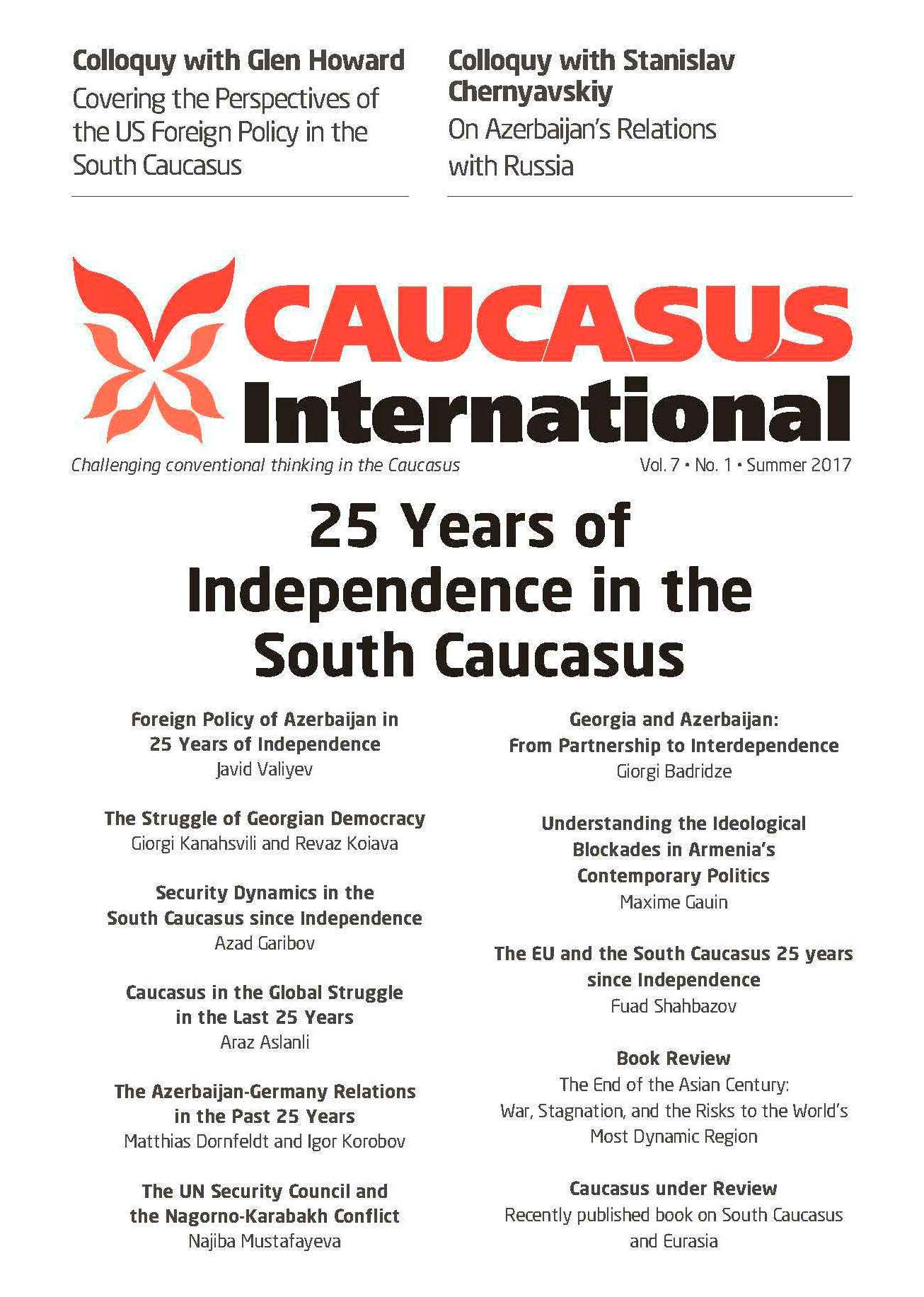 UNDERSTANDING THE IDEOLOGICAL BLOCKADES IN ARMENIA’S CONTEMPORARY POLITICS
UNDERSTANDING THE IDEOLOGICAL BLOCKADES IN ARMENIA’S CONTEMPORARY POLITICS
Maxime GAUIN 21.09.2017 -
 TÜRKİYE'DEN ERMENİ TERÖRİSTE SIKI TAKİP – ANADOLU AJANSI - 31.07.2019
TÜRKİYE'DEN ERMENİ TERÖRİSTE SIKI TAKİP – ANADOLU AJANSI - 31.07.2019
Tuğrul ÇAM 01.08.2019 -
 STRATEGICALLY MUM: THE SILENCE OF ARMENIANS (PART FIVE) - 08.2021
STRATEGICALLY MUM: THE SILENCE OF ARMENIANS (PART FIVE) - 08.2021
Iver TORIKIAN 03.12.2021 -
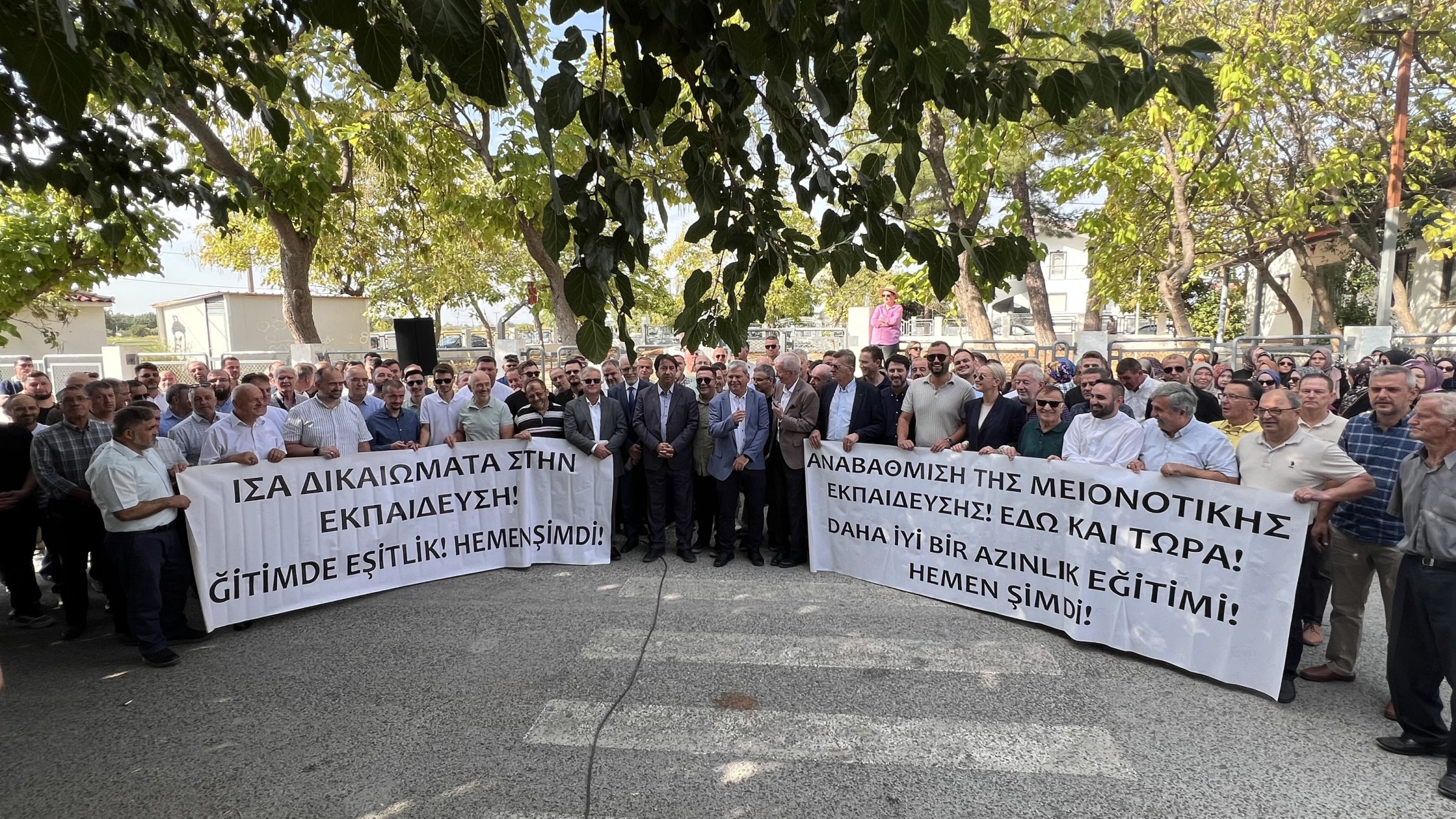 BROKEN TREATY: IGNORED RIGHTS OF TURKISH MUSLIM MINORITY IN GREECE - DAILY SABAH - 12.09.2025
BROKEN TREATY: IGNORED RIGHTS OF TURKISH MUSLIM MINORITY IN GREECE - DAILY SABAH - 12.09.2025
Teoman Ertuğrul TULUN 15.09.2025 -
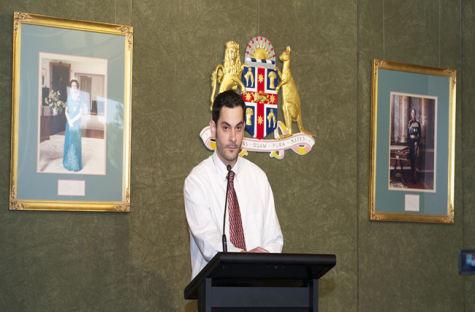 TAL BUENOS TARAFINDAN NSW PARLAMENTOSU’NDA YAPILAN KONUŞMA
TAL BUENOS TARAFINDAN NSW PARLAMENTOSU’NDA YAPILAN KONUŞMA
Tal BUENOS 25.12.2014


